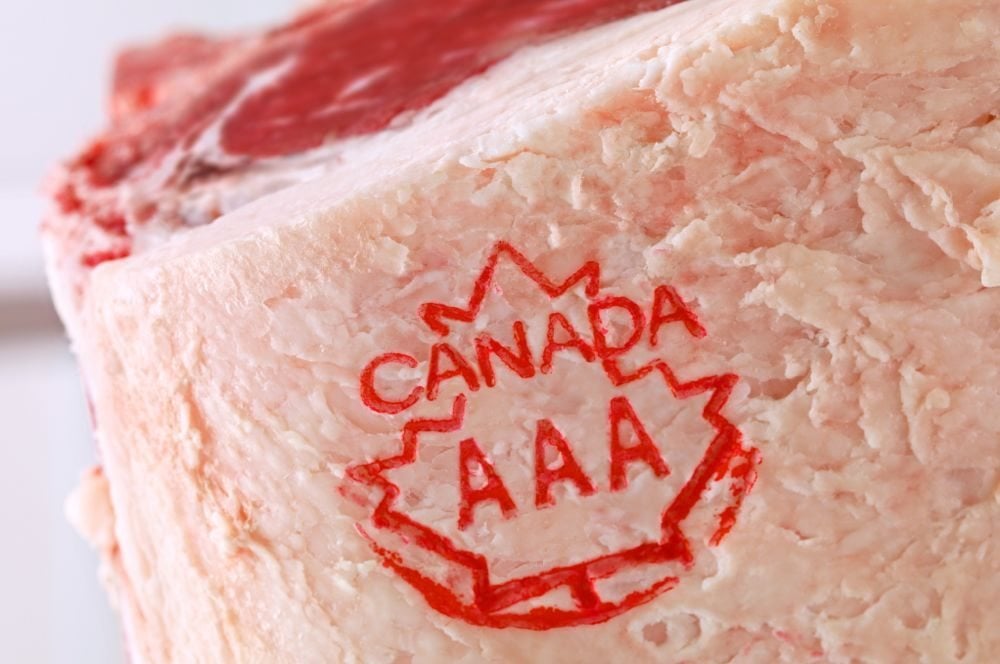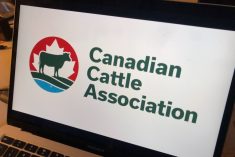After COVID-19 spread through the workforce of Canada’s largest beef packing plants this spring, many are asking whether the country should foster more, smaller processors.
The pressure has eased somewhat, at least for now, in the beef supply chain. Canfax reports over 60,000 head were slaughtered the last week of May, and the backlog of market-ready cattle is no longer growing. Packers are prioritizing heavy-weight cattle, Canfax adds, and cut-out prices have dropped from a high of $475 per cwt in mid-May to around $240 per cwt on June 11.
Read Also

Growing Canada’s beef herd: CCA’s priorities working with new federal government
This is my first column since the federal election. The Canadian Cattle Association works with all elected officials and parliamentarians, regardless…
Still, concerns linger about whether another wave of COVID-19 will overwhelm Canada’s beef supply chain. Some are wondering if more, smaller plants would be more robust than the huge plants that dominate the North American packing industries.
There has been plenty of talk that if the processing sector was more spread out, it wouldn’t have been hit as hard, said Bob Lowe, “which is probably right.” Lowe is a feedlot and cow-calf producer from Nanton, Alta., and the president of the Canadian Cattlemen’s Association (CCA).
But large packers do bring advantages. “We’ve developed a very efficient system which allows the producer to get paid more and the customer to pay less,” he said during a recent panel, organized by the CCA (see below).
Geoff Larkin, vice-president of the Young Cattlemen’s Council and a cow-calf producer from Middle Musquodoboit, N.S., said he didn’t see “any harm in some more local abattoirs around.”
It’s good that people care about locally produced food, he added.
“But I don’t think that’s the answer moving forward. I’d rather see us continue on with the bigger processing capacity and maybe have a few more local abattoirs. But I don’t think we need to jump ship and go total local, total small when in reality we need to maintain and grow what we have.”
Maryjo and Rob Tait, who raise and direct-sell beef from their farm west of London, Ont., were also on the panel. Before COVID-19 wreaked havoc on the food industry, the Taits were selling about 80 per cent of their beef wholesale to restaurants. Within a few days, they had to shift all of their sales directly to consumers.
Maryjo noted that they rely on a small processor, but having every producer run all their cattle through small processors isn’t something she sees as sustainable. The processor the Taits work with was at capacity before the pandemic hit Canada, Rob noted, and since then has become overwhelmed.
“They’re completely exhausted right now and closing down for a week, which we believe — they deserve that,” said Maryjo.
Kendra Donnelly of Korova Feeders Ltd, based near Acme, Alta., agreed on the importance of efficiency and getting the best value for products. The COVID-19 outbreaks in packing plants have highlighted how complex our food supply chain really is, she added.
“It’s not so simple. There’s no easy answer to this COVID-19 problem, but I think there’s an opportunity for Canadians to, for us, to look at it and see where we can improve as an industry. And I think everyone’s open to those ideas and excited about those opportunities after COVID-19.”
Now it’s a matter of Canadians and government making it a priority, she added.
Lowe noted that the big processors have invested heavily into the plants to make them “COVID-proof.” Based on what he’d seen from company presentations on the new measures, “my own thought is it would be almost impossible for any bug to be transmitted inside the plant.”
Still, he said it would be good to have more processing capacity within Canada.
“Surge capacity? I don’t know how you get that because most of the time it wouldn’t be necessary. But times when a big plant slows down, it’d sure be nice to have it.”
For more, see:
- Writing the handbook on COVID-19
- What happened in Canada’s biggest beef plants this spring?
- Relationship between union and plant management suffers under COVID-19
CCA Town Hall:
















